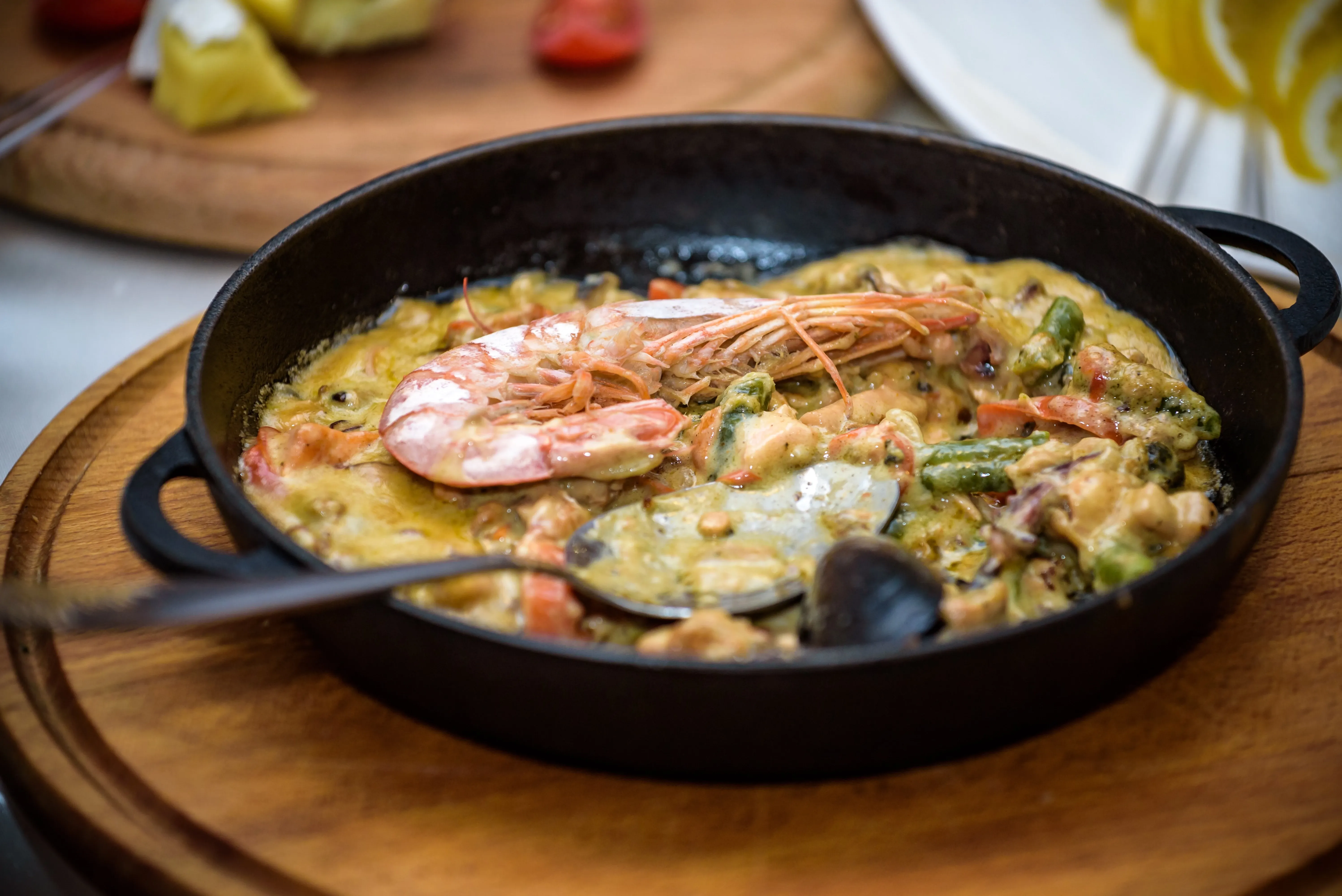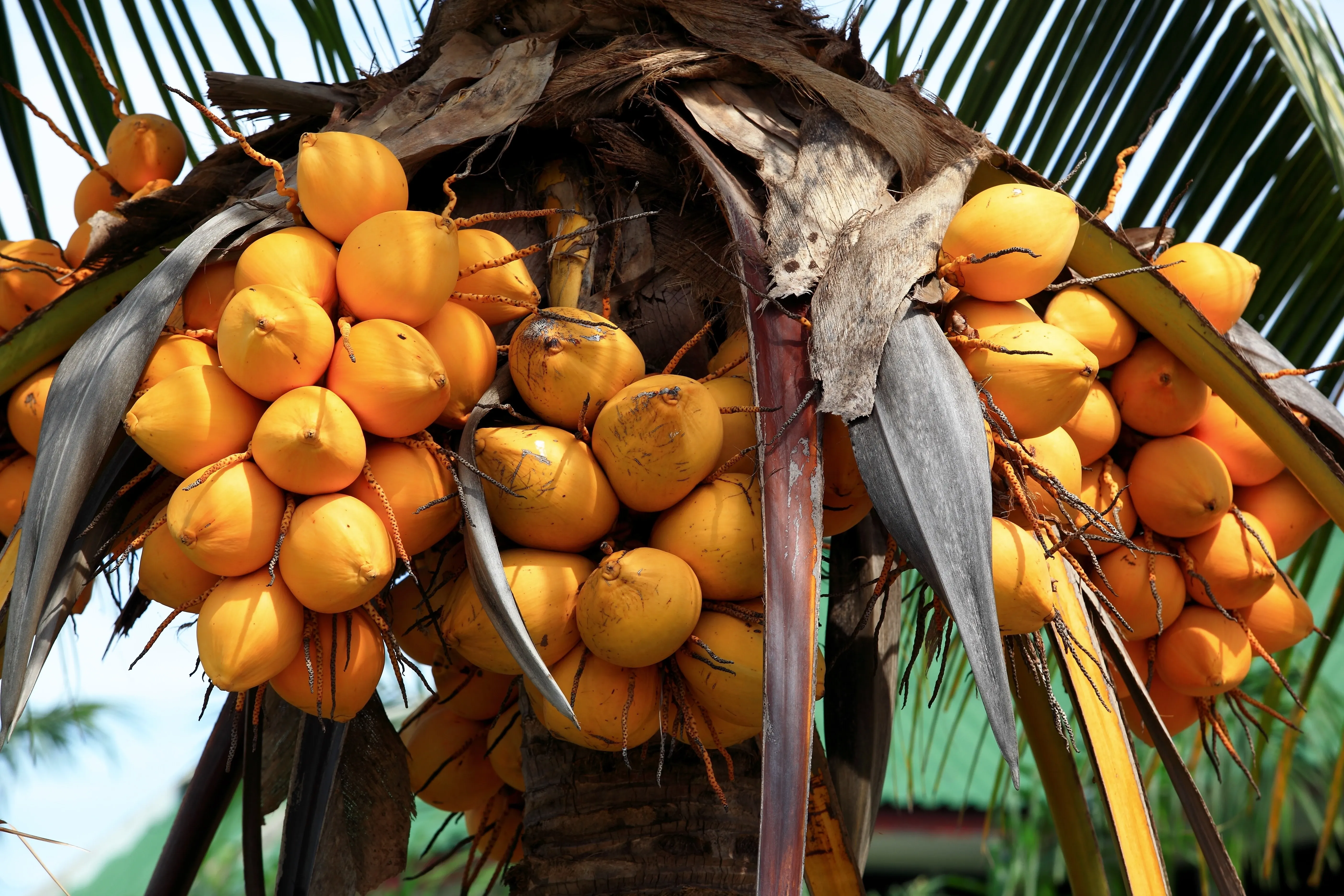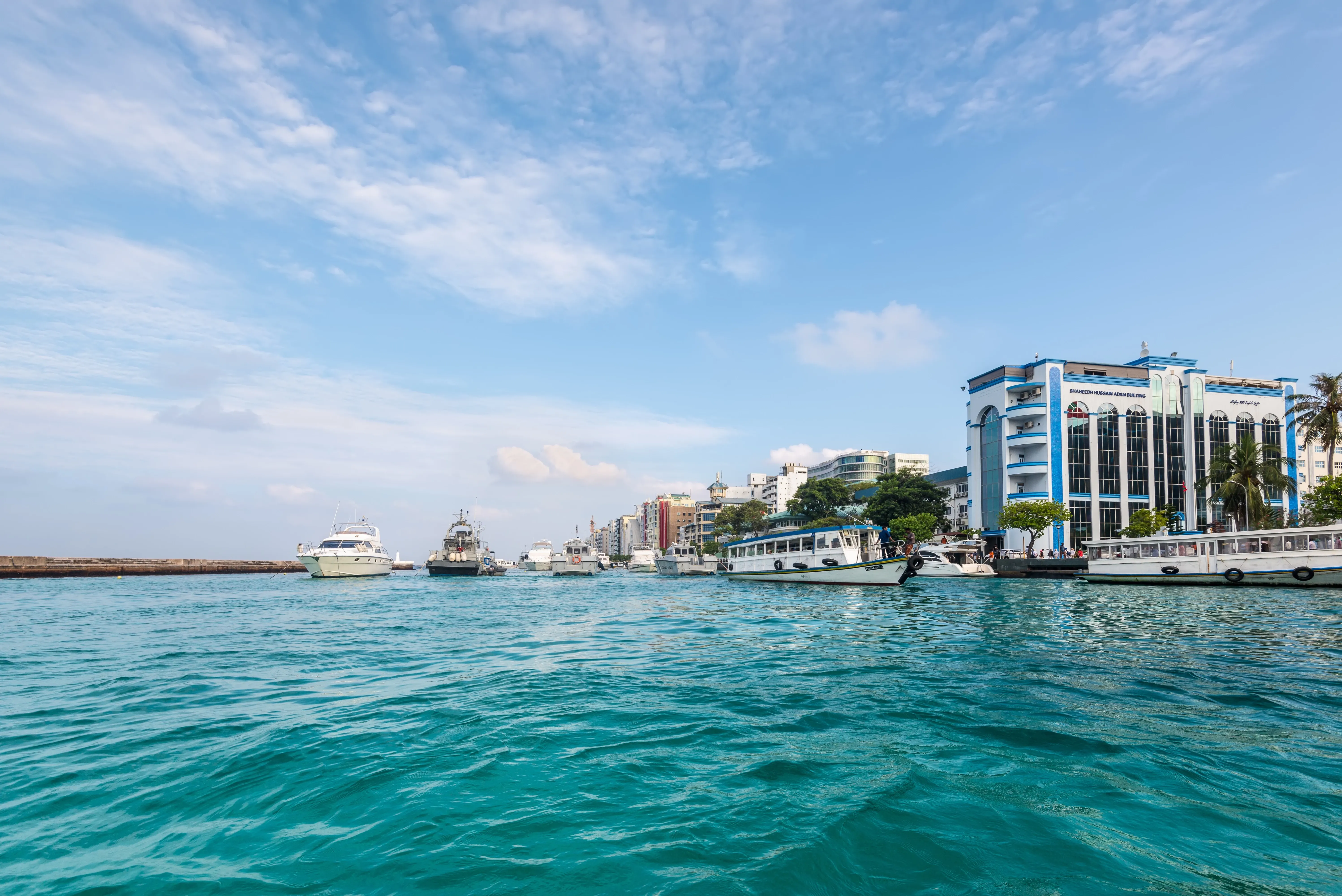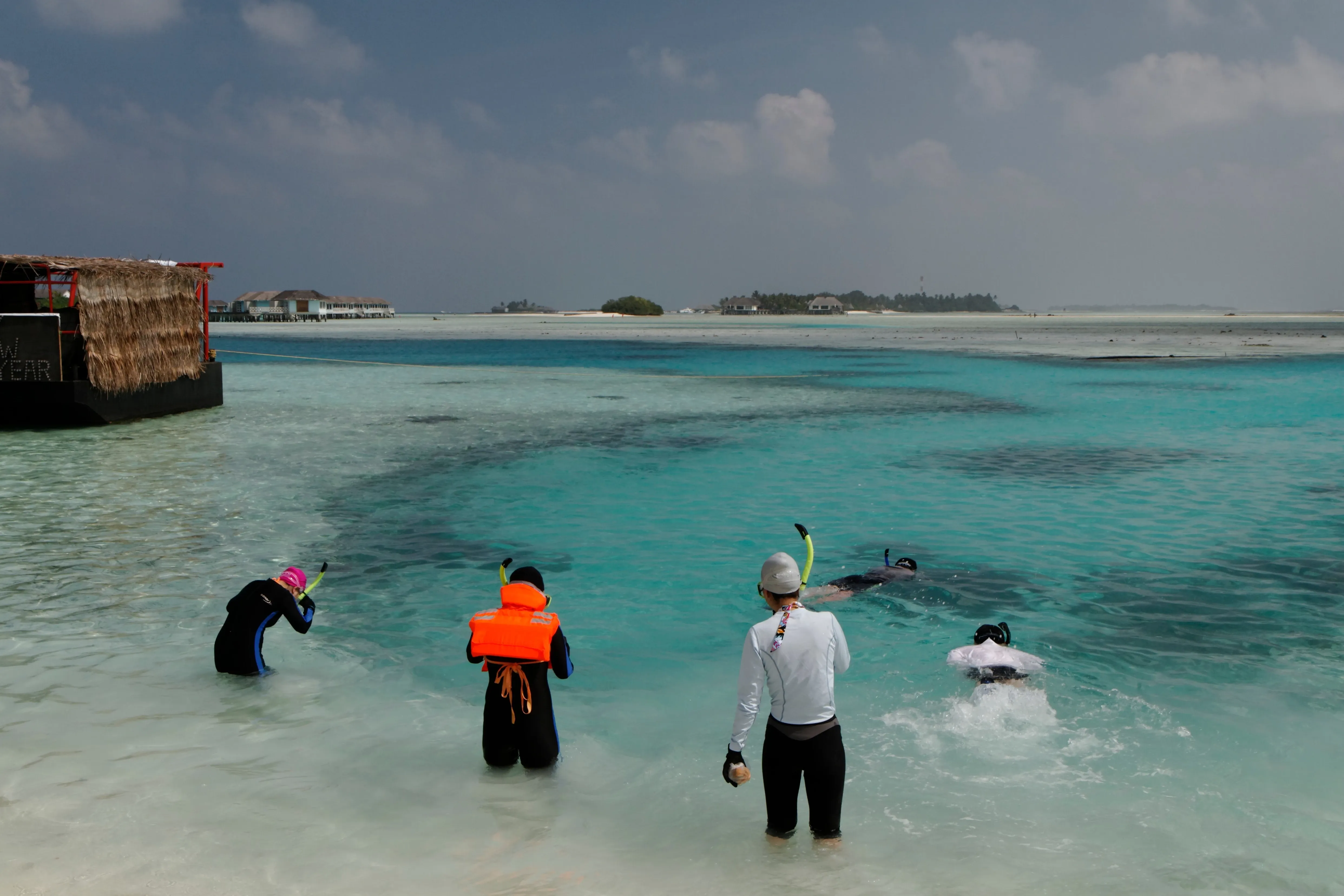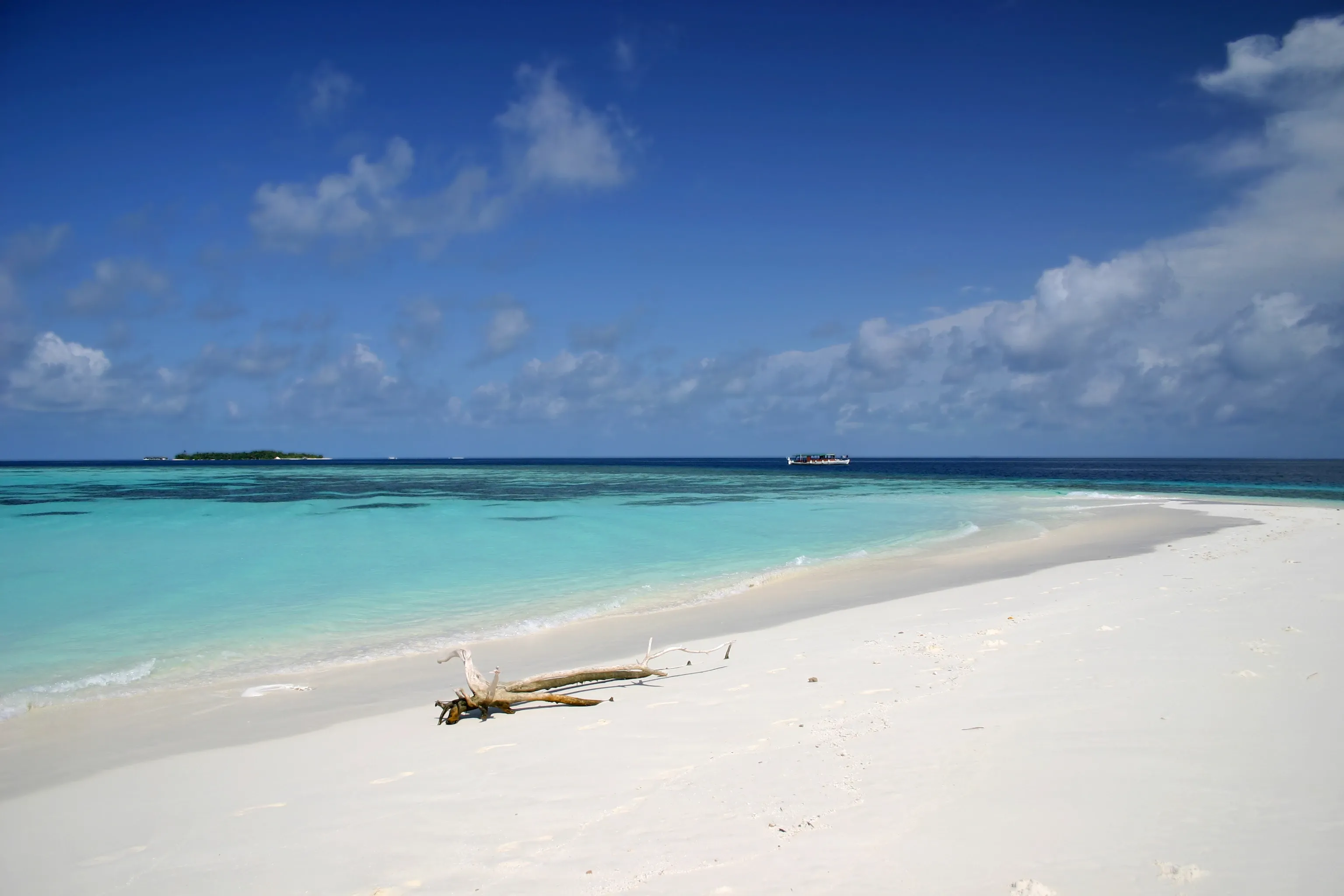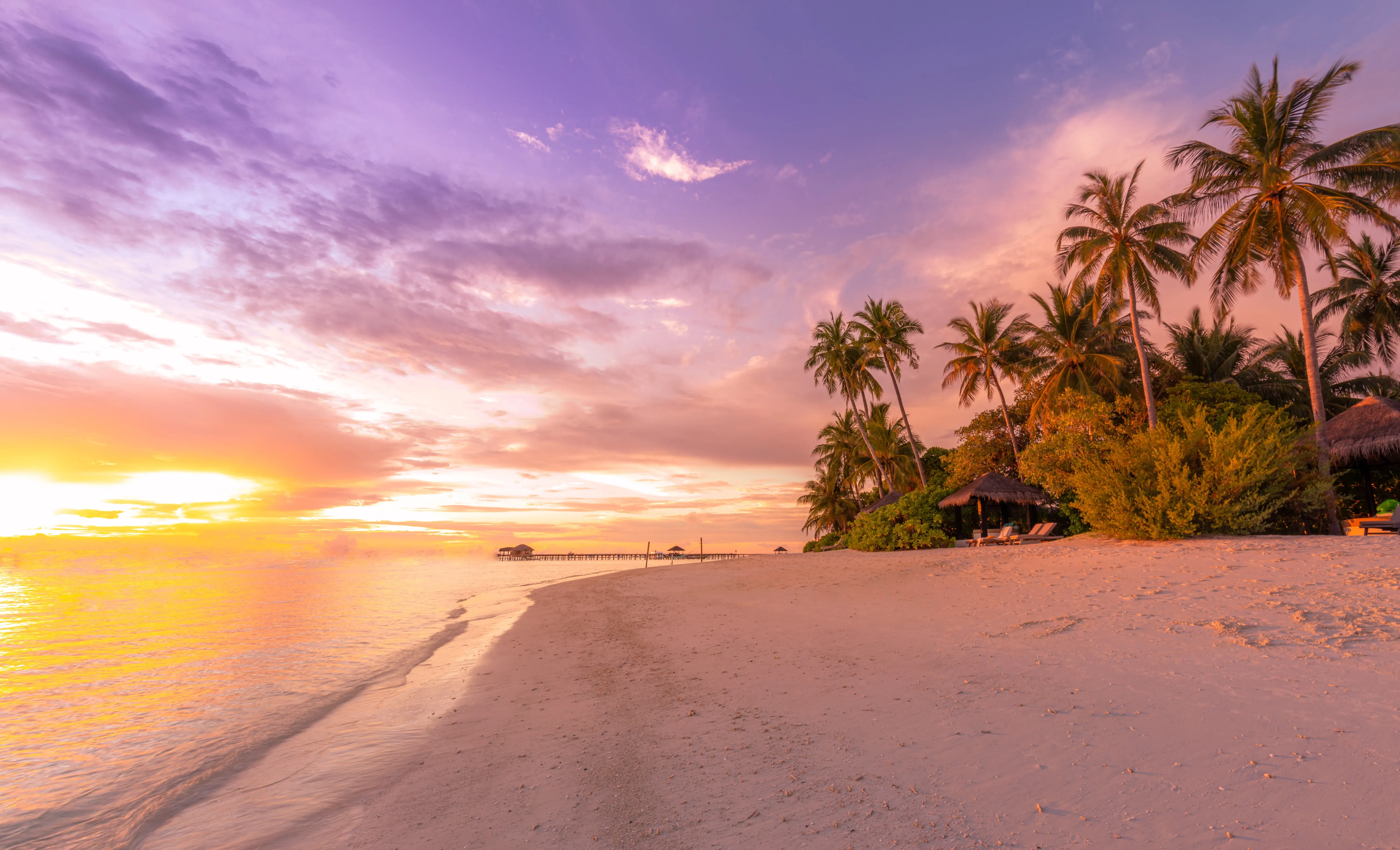A traveler's guide to Maldives etiquette
The Maldives, a tropical paradise in the Indian Ocean, consists of almost 1,200 islands known for their stunning beaches, crystal-clear waters, and rich underwater world.
The uniqueness of the Maldives is reflected not only in its breathtaking natural scenery but also in the contrasts between deeply rooted religious and cultural traditions and the liberal practices in the tourism sector.
The entire population of the Maldives adheres to Sunni Islam and practices it in a manner similar to India or Indonesia. However, millions of non-Muslim tourists visit annually, and cultural rules are somewhat relaxed at resorts and private islands.
This allows tourists to enjoy an alcoholic cocktail and sunbathe in swimwear under a palm tree. However, these different ways of life also bring challenges, and there are several things to consider when traveling on the main island of greater Malé or local islands.
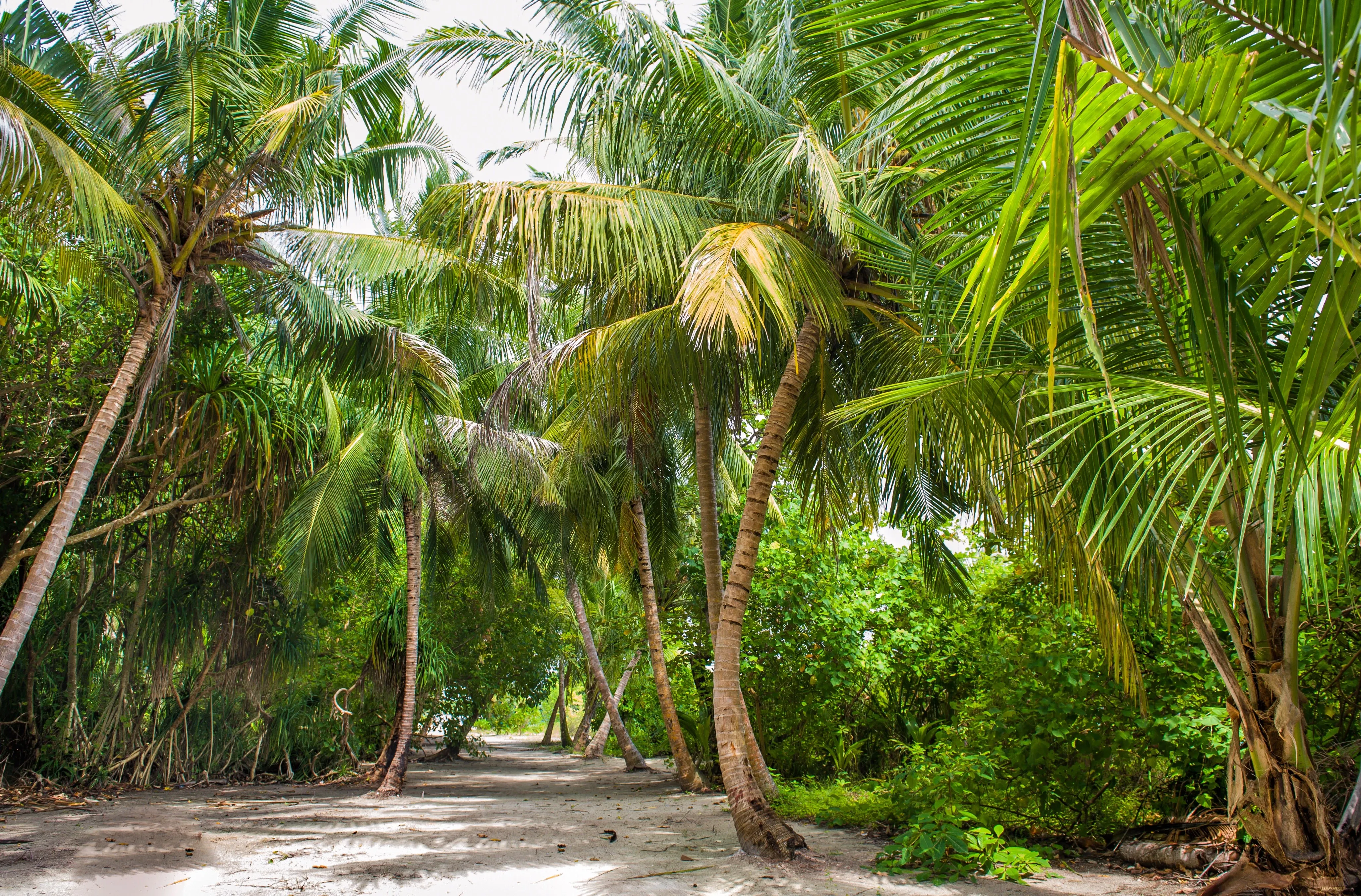
Greetings in the Maldives
Maldivians are warm and friendly people. Instead of greeting with "Hello" or "Good day," they use "As-Salaam-Alaikum," which translates to "Peace be upon you." This expression shows that one is approaching with peaceful and kind intentions. The response to this is "Wa-Aleikum-Salaam" - "And peace be upon you."
Men shake hands with each other, while local women generally do not shake hands with strangers. If unsure, it's best to let the other person make the first move. The Maldivian population is very hospitable and believes in the magic of a warm smile.
Visitors are often welcomed with a coconut drink, as the coconut is considered a symbol of life and prosperity in Maldivian culture. Most resorts have adopted these cultural aspects, and a waiter often waits at the jetty to hand a refreshing coconut to arriving guests to welcome them to the Maldives - so give them a warm smile and show your appreciation.
Short facts of the Maldives
- Official language: Dhivehi
- Form of government: Presidental Repulic
- Population: 515.000
- Capital city: Malé
- Currency: Maldivian rufiyaa (MVR)
- Time zone: Maldivian Time (MVT)
- Telephone area code: +960
- Summer months: tropical all year round, no specific summer months
- Winter months: tropical all year round, no specific winter months
- Climatic warmest Temperatures: 32°C
- Climatically coldest temperatures: 25°C
- Standard voltage of electricity: 230 V
Language Do’s and Don’ts in the Maldives
In hotel resorts, faux pas are generally forgiven, but certain do's and don’ts should be observed, especially in Malé and on local islands. Thats why we put together some things to consider when travelling to the Maldives.
Dhivehi is the official language of the Maldives and is spoken by the majority of the population. Dhivehi belongs to the Indo-Iranian language family and features unique linguistic characteristics that set it apart from other languages in the region. The script used for Dhivehi is known as Thaana, a system written from right to left and featuring an interesting mix of Arabic and Indian influences. With some words also from English, Tamil, Hindi and Portuguese.
While Dhivehi is the main language used in daily life, English is commonly spoken in tourist areas. Many Maldivians, especially those in the hospitality and service sectors, have good English skills, which facilitates communication for international visitors. Nevertheless, it is helpful and appreciated if you use basic Dhivehi expressions like "choukouriya" (Thank you) or "hithaamahuri" (Sorry). The Maldivian population values respectful and friendly interactions.
Jokes or negative remarks about culture, religion, or government should be avoided, and the religious practices of the locals should be respected. It is advisable to avoid loud noises in public or close to mosques and even refrain from blowing your nose. Anger and aggression are seen as inappropriate, and open hostility is considered rude and coarse.
Just as important as the spoken language is one's body language. In the Maldives, it is important to hand things over with the right hand, as the left hand is generally considered impure. Left-handed individuals should use their right hand to pass items or point at people, especially outside hotel resorts. The left hand should also be avoided when eating.
In many regions of South and Southeast Asia, the head is considered the most sacred part of the body, while the feet are considered unclean. Therefore, avoid pointing at people, sacred places, or food with your feet or stepping over them.
When sitting, it is advisable to tugg your feet under your body so they do not point at others. If someone is accidentally touched by a foot, a prompt apology is appropriate. Additionally, avoid touching people, especially children, on the head, as this is seen as rude. Make sure to ask for permission before you take photographs of people and sacred places.
Dining Do’s and Don’ts
When dining in the Maldives, it is important to familiarize yourself with the local cuisine and available ingredients. Maldivian cuisine is characterized by fresh seafood, coconuts, rice, and a variety of spices, with influences from South Asian and Arabic cuisines.
A typical breakfast is Mas Huni, a dish made from shredded tuna, coconut flakes, onions, and chilies, often served with unleavened flatbread. Garudhiya, a clear fish soup, and various curries with fish, chicken, or vegetables, featuring a rich mix of coconut milk and spices, are also popular.
Traditional snacks, known as Hedhikaa, include various fried treats, often filled with tuna. Meals are typically shared, with a variety of dishes served family-style and eaten with fingers, emphasizing social and familial connections.
Some Do’s and Don’ts to keep in mind:
- One of the most important rules is that food is often eaten with the right hand, as the left hand is considered impure. Left-handed individuals should also use the right hand to bring food to their mouth. In many Maldivian households, it is common to eat sitting on the floor, with food served in large bowls for everyone to share. A finger bowl is usually available on the table for cleaning fingers after the meal. As a tourist, it is not considered rude to ask for cutlery.
- Respect for hosts and meals is crucial. It is expected to praise the food and never refuse it when offered, as refusal may be seen as rude. When eating communally, take only as much as you can eat to avoid waste.
- Additionally, it is customary to eat in a certain order, often starting with milder dishes and progressing to more intensely spiced foods. Guests should wait to be invited to start eating, and it is polite to finish your meal when the host does.
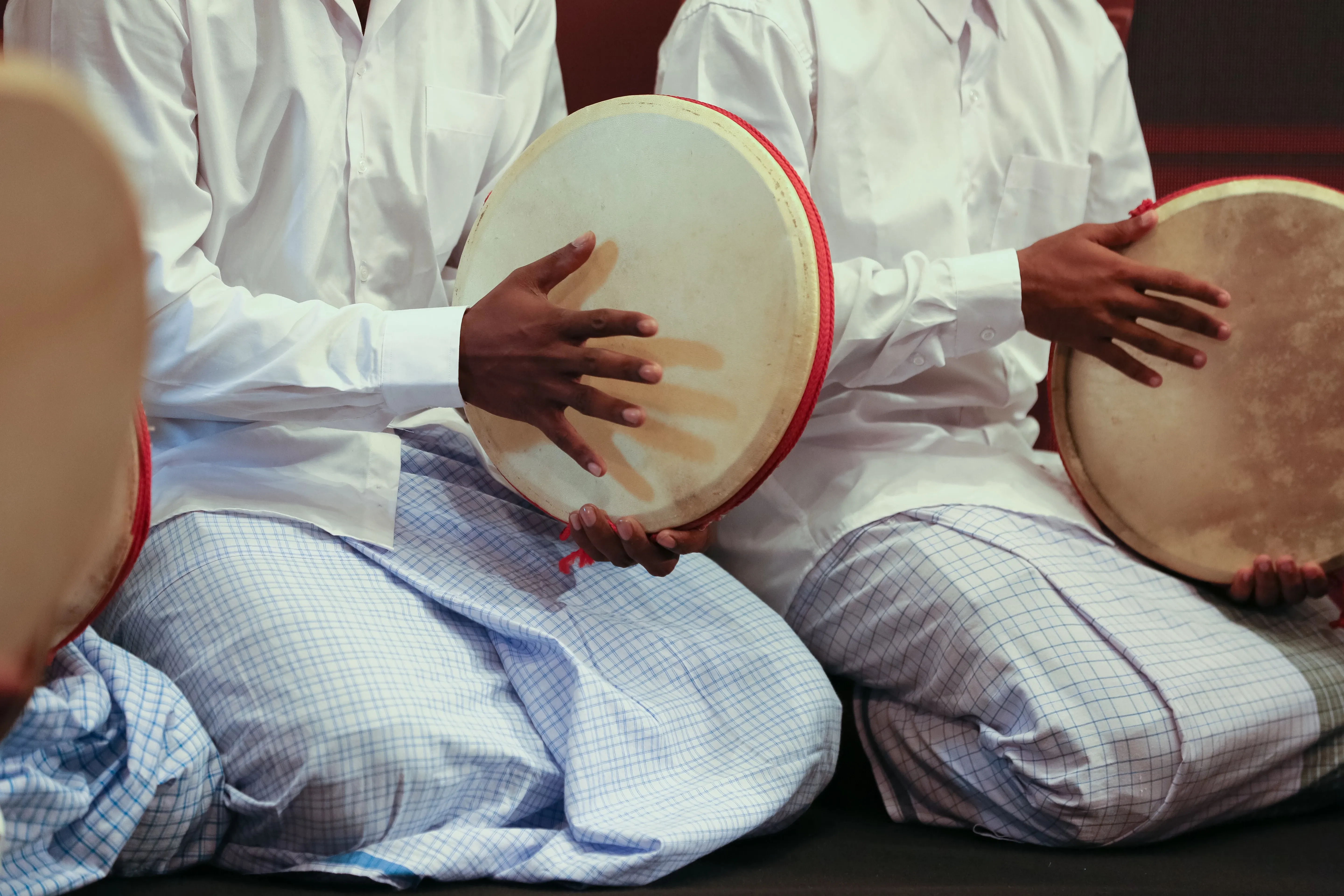
Tipping etiquette in the Maldives
Tipping is not necessarily a deeply entrenched tradition in the Maldives, as in some Western countries, but it is becoming increasingly common and often appreciated, especially in tourist areas.
Here are some guidelines for tipping in the Maldives:
- Hotels and Resorts: In many hotels and resorts, a service charge of around 10-12% is already included in the bills, considered a general tip for the staff. However, it is customary to give additional tips for particularly good service, such as for housekeepers, porters, or butlers. An amount of about 1 to 5 USD per day for housekeeping staff and 1 to 2 USD per luggage item for porters is appropriate.
- Restaurants: If no service charge is included, it is customary to leave about 5-10% of the bill as a tip, depending on satisfaction with the service.
- Tour Guides and Boat Crew: For excursions, it is customary to tip the guide or boat crew at the end of the day if you are satisfied with the service. Here, 10-20 USD per day for the guide and a smaller amount for the crew is appropriate.
- Taxis and Transport: Tipping is not necessarily expected in taxis, but it is friendly to round up the fare or give a small tip, especially on longer journeys or if the driver was particularly helpful.
- Spas and Wellness: In spas, it is customary to give about 10-15% of the treatment cost as a tip if you are satisfied with the service.
Tips should always be given in cash, as it is often not possible to settle them by credit card. Additionally, it is a nice gesture to give tips personally and exchange a few friendly words to express your appreciation.
Other Do’s and Don’ts in the Maldives
Respecting religious believes
When visiting the Maldives, it is important to understand that Islamic beliefs strongly influence daily life on the islands. The workweek in the Maldives is from Sunday to Thursday, with the weekend falling on Friday and Saturday.
Additionally, daily prayer times shape daily life. The call to prayer occurs at specific times: one hour before dawn, at midday, in the afternoon around 3:30 PM, at sunset, and in the early evening.
Previously, the call to prayer was loudly announced by the muezzin from the top of the minaret, but today it is done via loudspeakers, and the muezzin is often shown on television. After each call to prayer, many shops and offices close for about 15 minutes. Therefore, it is not uncommon for locals and public transport drivers to be delayed due to prayers.
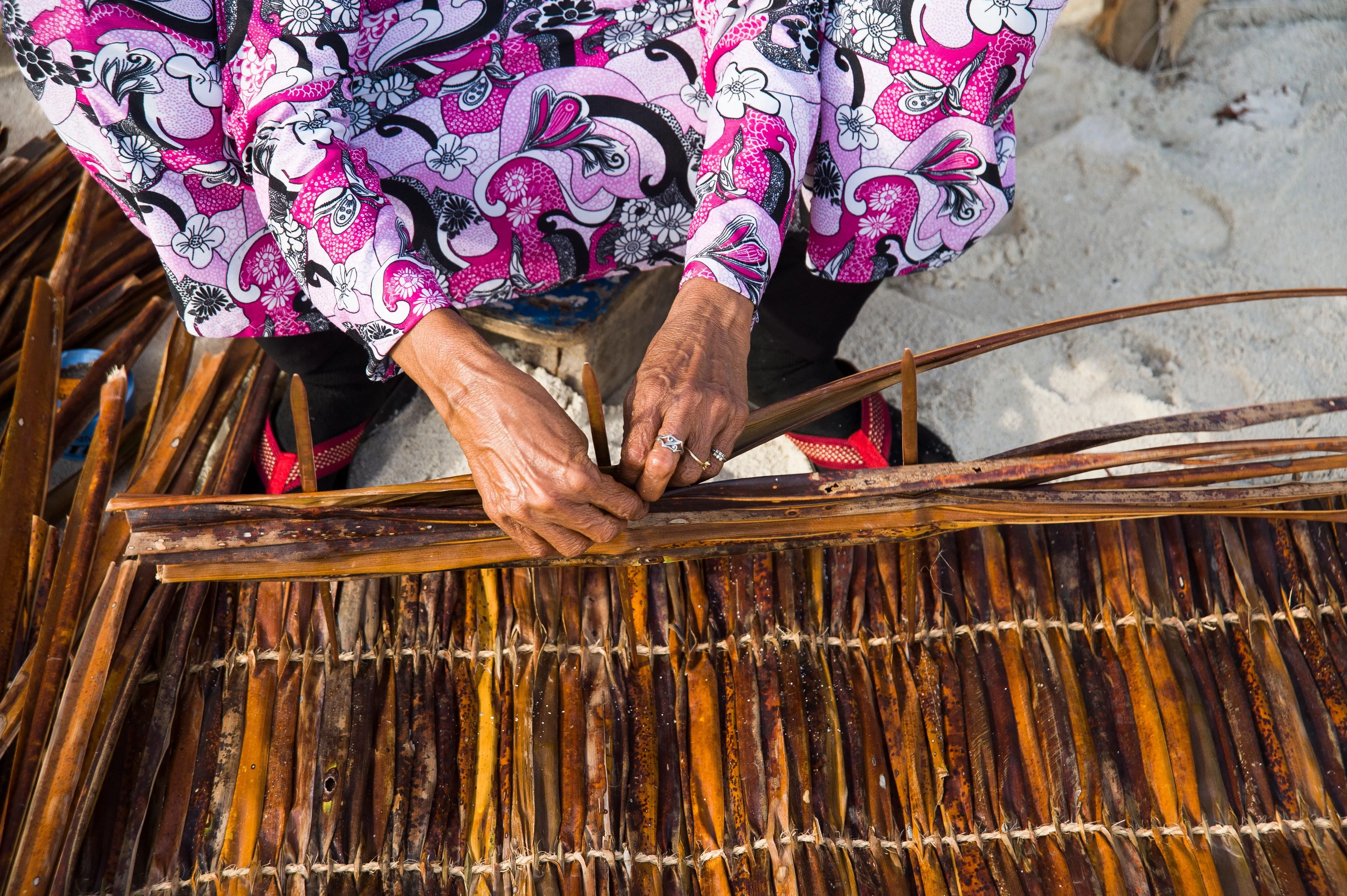
Travelers visiting the Maldives during Ramadan should be especially respectful of local customs. The fasting month begins with the appearance of a specific new moon and ends with the sighting of the following new moon. Ramadan follows a lunar calendar with 12 months, each comprising 28 days. During this time, Muslims abstain from eating, drinking, smoking, and intimate relations from dawn until sunset.
Visitors to the islands should also refrain from these activities in public outside of resorts during this period. Most tea houses and cafés are closed during the day, offices have reduced hours, and many people are engaged in religious duties. Instead, large breakfasts before dawn and lavish dinners after sunset are to be expected. Ramadan ends with the celebration of Kuda Eid, which includes three public holidays.
It also should be mentioned that visits to mosques are generally not permitted for non-Muslims unless specific tourist offerings are available. Proper attire is required, when visiting religious sites.
Dressing guidelines
Dressing appropriately in the Maldives is key to enjoying the tropical paradise while respecting local customs. The islands' warm climate calls for lightweight and breathable fabrics, with cotton and linen being ideal choices. On resort islands, casual beachwear such as swimsuits, shorts, and sundresses are common, but it's always a good idea to bring a cover-up for moving around the resort. Sun protection is crucial, so wide-brimmed hats and sunglasses are recommended.
When visiting local islands or the greater Malé region, modesty becomes important. As a predominantly Muslim country, the Maldives expects visitors to dress conservatively, covering shoulders and knees. Women can opt for maxi dresses, skirts, or trousers paired with blouses, while men should consider long pants and shirts with sleeves. Swimwear is appropriate only at resort beaches or designated bikini beaches on local islands.
In the evenings, especially for dinner at resorts, a slightly more polished look is appreciated. A sundress or a smart blouse for women and a nice shirt for men strike the right balance. Remember, the key to enjoying the Maldives is comfort combined with a respectful acknowledgment of the local culture.
Adhering to the drinking policy
Due the Islands Islamic influenced laws, there are a few alcohol drinking guidelines one should know before travelling to the Maldives. Alcohol consumption is strictly regulated and is only permitted in licensed establishments, such as resorts and liveaboard boats.
Visitors can freely enjoy alcoholic beverages at these locations, but it is illegal to bring alcohol into the country, being under the influence upon arrival or consuming it on local islands where residents live.
It's important for travelers to be aware of these rules to respect local customs and avoid any legal issues. Always drink responsibly and be mindful of the cultural context while enjoying your stay in this beautiful island nation.
Other custom regulated items
There are a few other prohibited items that one is not allowed to bring on the Islands, which can seem unusual to other travel destinations.
The importation of pork and pork products is prohibited, reflecting the country's Islamic beliefs, which forbid the consumption of pork. Additionally, visitors should not bring religious materials such as books, pamphlets, or idols related to non-Islamic religions, as the promotion of religions other than Islam is restricted in the Maldives.
The country also enforces strict drug laws, and possession of illegal drugs can result in severe penalties, including long-term imprisonment. Moreover, all forms of pornography are illegal included magazines with scantily clad people as well as sex toys and should not be brought into the country.
Adhering to these regulations helps ensure a respectful and trouble-free visit to the Maldives.
»The Maldives is not just a paradise; it is a community of people who have lived in harmony with nature for centuries.«
Reminder: Learn about the history of the Maldives
The Maldives, a tropical paradise in the Indian Ocean, tell a story of exploration, conquest, and transformation. Since their initial settlement by Dravidians from South India in the 5th century BC, the islands have experienced a tumultuous history.
The initial Buddhist era was replaced in 1153 by the introduction of Islam by the Arab trader Sultan Muhammad al-Adil. Islam profoundly influenced Maldivian culture and society, laying the foundation for a unique identity.
In the 16th century, the fascinating archipelago was conquered by the Portuguese, but colonial rule was short-lived. In 1573, the Maldivians succeeded in expelling the Portuguese through a bold rebellion. Later, in 1887, the islands came under British protection, which granted them some autonomy but also brought the weight of colonial presence.
The Maldives gained independence from Britain in 1965 and transitioned from a monarchy to a republic in 1968. This realignment marked the beginning of a new era filled with political upheavals and social changes.
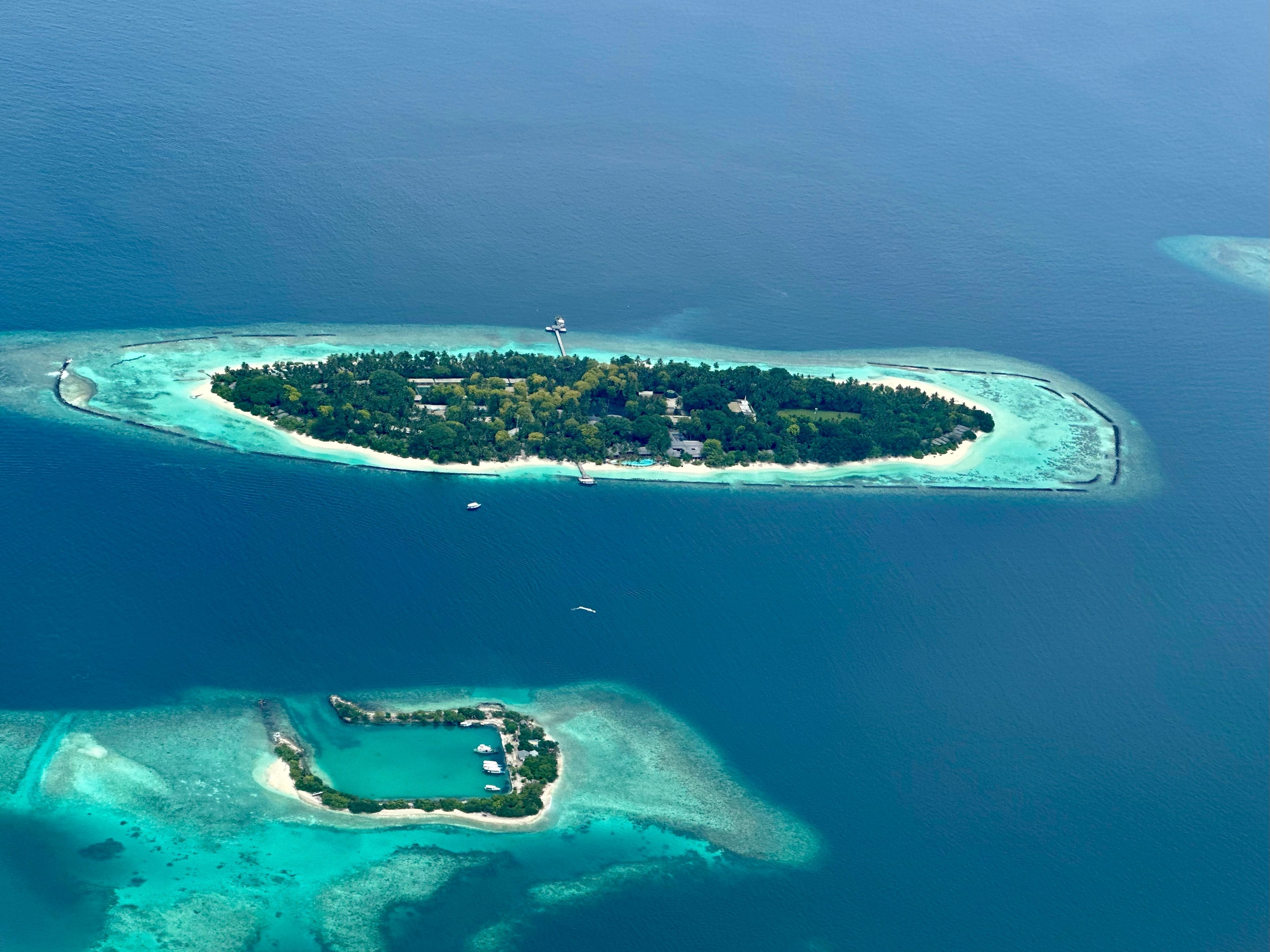
In recent decades, the Maldives has become one of the world's most popular tourist destinations. Its stunning beaches, luxurious resorts, and unique underwater world attract millions of visitors annually and have significantly contributed to the country's economy. However, this development also brings challenges, especially concerning environmental protection and the impacts of climate change, which pose a serious threat to the low-lying islands.
Today, the Maldives is a democratic republic with an elected president and faces the challenge of balancing economic development with the protection of its natural resources. Despite the challenges, the history and culture of the Maldives remain a significant source of pride and identity for its people.
Maldives etiquette in brief
While it is challenging to cover all aspects of Maldivian etiquette in a brief overview, with a bit of consideration and politeness, you will quickly feel at ease. The Maldives are known for their idyllic beaches and crystal-clear waters but also for their cultural contrasts between deeply rooted Islamic traditions and the tourist-friendly openness of the resorts.
Key etiquette tips for a visit to the Maldives include: Learn about local greeting rituals such as "As-Salaam-Alaikum" before your trip, dress respectfully on local islands, and be aware of cultural specifics, such as avoiding public displays of affection and respecting prayer times.
Source references:
Lonely Planet
Facts and Details
Sign up for the newsletter
By clicking on “Subscribe now” I will subscribe to the Conscious Explorer newsletter with all the information about mindful travel. Information on the success measurement included in the consent, the use of the shipping service provider MailChimp, logging of the registration and your rights of revocation can be found in our privacy policy.

